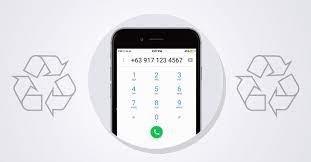Introduction
In the dynamic world of telecommunications, the concept of phone number recycling plays a pivotal role in managing the availability of phone numbers and addressing the growing demand for unique identifiers. This article delves into the multifaceted process of phone number recycling, exploring the reasons behind it, its implications for consumers and businesses, and the measures taken by telecommunication providers to ensure a seamless and secure recycling system.
Understanding Phone Number Recycling
Definition and Purpose
Phone number recycling refers to the practice of reassigning a previously used and deactivated phone number to a new subscriber. This process is essential for optimizing the limited pool of available phone numbers, ensuring efficient use of resources, and meeting the ever-increasing demand for unique phone identifiers.
Reasons for Recycling
Exponential Growth in Mobile Subscribers
The global surge in mobile phone users has led to a depletion of available phone numbers. Recycling allows providers to manage this scarcity effectively.
Deactivation and Non-Usage
Numbers become eligible for recycling when users voluntarily deactivate their accounts, switch carriers, or when a number remains inactive for an extended period.
Optimizing Limited Resources
Recycling helps telecommunication providers make the most of the finite range of available phone numbers, preventing exhaustion of the numbering resources.
Implications for Consumers
Unintended Connections and Messages
Communication Residue
Recycled numbers may still receive calls and messages intended for the previous owner, leading to potential privacy concerns and misunderstandings.
Potential for Unwanted Contacts
Consumers acquiring a recycled number may find themselves receiving calls or messages from unfamiliar contacts due to the previous owner’s associations.
Security and Privacy Considerations
Sensitive Information
If the previous owner of a recycled number had used it for account verifications or sensitive communications, the new owner might inadvertently gain access to private information.
Two-Factor Authentication (2FA)
Recycled numbers linked to previous users’ 2FA accounts may pose security risks if the new owner isn’t aware of the potential associations.
Business Perspectives and Challenges
Customer Engagement and Trust
Unwanted Contacts
Businesses may inadvertently contact the wrong individuals if they continue to use outdated contact lists that include recycled numbers.
Brand Image
Unintended communication with new owners of recycled numbers can impact a business’s reputation and customer trust.
Compliance with Regulations
TCPA and Consent
The Telephone Consumer Protection Act (TCPA) mandates that businesses obtain consent before contacting consumers. Recycling introduces challenges in ensuring businesses have accurate and up-to-date consent records.
Data Protection Laws
Businesses must navigate data protection regulations to safeguard consumer privacy when dealing with recycled numbers.
Telecommunication Providers’ Approach
Policies and Practices
Number Deactivation Periods
Providers typically implement a grace period after deactivation before a number becomes eligible for recycling. This allows for any residual connections to diminish.
Identity Verification
Before assigning a recycled number, providers often implement identity verification processes to minimize privacy and security risks.
Consumer Education
Informing Users
Telecommunication providers strive to educate users about the potential implications of recycled numbers, encouraging them to update their contact information and be cautious about unintended connections.
Opt-Out Mechanisms
Providing Choices
Providers offer opt-out mechanisms for users who do not wish to receive calls or messages intended for the previous owner of a recycled number.
Future Trends and Innovations
Advanced Identity Management Systems
Biometric Verification
The integration of biometric authentication and advanced identity management systems can enhance the accuracy of identifying and verifying users associated with recycled numbers.
Blockchain Solutions
Immutable Records
Blockchain technology can create immutable records of number ownership, reducing the chances of privacy breaches and ensuring transparent ownership transitions.
Conclusion
Phone number recycling is a necessary practice in the telecommunications landscape, driven by the increasing demand for unique identifiers and the need to optimize limited resources. While it offers efficiency and sustainability benefits, the process comes with challenges related to consumer privacy, security, and unintended connections. Telecommunication providers play a crucial role in implementing policies, educating users, and exploring innovative solutions to mitigate these challenges. As the telecommunications industry evolves, addressing the implications of phone number recycling remains essential for fostering trust, privacy, and efficient communication in a connected world.
